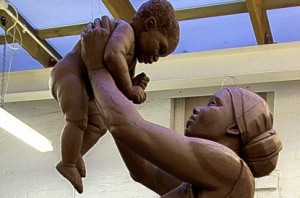Protecting Women’s Rights : A Vital World Issue
June 17th 11:30am-1:30pm
______________________
The inequitable treatment of women throughout the world’s societies is well known. In most societies around the world violence and abuse of women and girls is endemic. One third of all women will be raped, beaten, or violated.
We have seen heart-wrenching examples of widespread rape in war of women and children. It’s happening right now as you read this word. This is the brutal feature of conflicts throughout the world.
We all must support programs that bring help and rescue services to victims of violence. We must bring awareness about their treatment, and support their human and civil rights. We must advocate for an end to all forms of violence and heal the terrible traumas.
In addition to this global violence, women have little economic power in the world. They directly influence less than 2 percent of the world’s assets, even though they perform nearly 3 /4 of the worlds work and produce more than 1 /2 of the world’s food. The World Health Organization states that in 2000, Women accounted for 70% of those living below the absolute poverty line.
When women are able to influence finances, their families live better, move out of the severe poverty that they have been in and the children become more educated. The education of women and girls has been shown to be the single most effective way for economies to succeed, for health and nutrition and community to prosper.
According the the World Health Organization:
“Being a man or a woman has a significant impact on health, as a result of both biological and gender-related differences. The health of women and girls is of particular concern because, in many societies, they are disadvantaged by discrimination rooted in sociocultural factors. For example, women and girls face increased vulnerability to HIV/AIDS.
Some of the sociocultural factors that prevent women and girls to benefit from quality health services and attaining the best possible level of health include:
- unequal power relationships between men and women;
- social norms that decrease education and paid employment opportunities;
- an exclusive focus on women’s reproductive roles; and
- potential or actual experience of physical, sexual and emotional violence.
While poverty is an important barrier to positive health outcomes for both men and women, poverty tends to yield a higher burden on women and girls’ health due to, for example, feeding practices (malnutrition) and use of unsafe cooking fuels (COPD).”
Join us as we explore ways to help in this cause. We will discuss and then come to some practical solutions that can effect this issue. On June 17th, we will walk and talk on the rail trail in Carmel, NY and proceed to a potluck lunch and some plan of practical activism. Bring your ideas, examples of good models, well researched international programs promoting women’s rights, micro lending programs, etc….
Call to discuss the details, what to bring, where we will meet, other ideas…Register Here->
www.putnamhealingarts.com
845 228 8132



